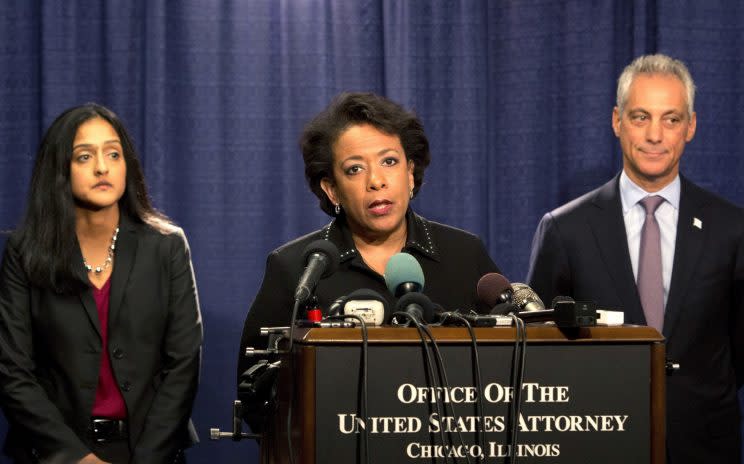Chicago activists: Justice Department report confirms what we already knew about police violence
The Justice Department’s scathing report on the Chicago Police Department’s excessive use of force and other issues offered few surprises for local activists who’ve long demanded action against police misconduct.
Among the findings included in the 164-page report, released Friday, is evidence of improper training, insufficient oversight and systemic racism that has made black and Latino Chicagoans the victims of 10 times more police violence than the city’s white residents. The report said minority residents were routinely subjected to “treatment so demeaning they felt dehumanized.”
The report reflected the findings of a 13-month investigation into Chicago police practices that was launched in the wake of citywide protests after the release of a video that showed a white Chicago police officer fatally shooting black teen Laquan McDonald 16 times.
But as Karen Sheley, director of the ACLU of Illinois’ Police Practice Project, said Friday, “These findings are not new.”
“The ACLU and other advocates have pointed out bad policing practices for decades, only to see calls for reform neglected and problems become ingrained after decades of acceptance,” Sheley said in a statement to Yahoo News.

At a press conference in Chicago on Friday, Attorney General Loretta Lynch announced that the city and the Justice Department had agreed to begin negotiations on a court-enforced consent decree, which would outline a specific set of reforms the CPD would be required by a federal judge to implement.
But, as the Chicago Tribune noted, it could take months for a consent decree to be completed and approved in federal court. Under the Obama administration, a number of cities — including, most recently, Baltimore — have agreed to implement police reforms under consent decrees with the Justice Department. However, Jeff Sessions, President-elect Donald Trump’s nominee for attorney general, has been an outspoken critic of consent decrees in the past and, during his confirmation hearings at the Senate this week, expressed concern about using the tactic to enforce police reforms.
“Given the Trump administration’s announced resistance to police reform, we call on the city to enter an agreement with the Department of Justice now,” said the ACLU’s Sheley. “Such a decree would ensure that a federal judge would oversee the reform that the report shows is critical.”
However, some activists were less optimistic of the chances that the Justice Department report could have any real impact on problems that have plagued the Chicago police.
Rahm continues to praise police. He is unwilling and incapable of changing the violent racist classist culture of Chicago policing.
— BLMChicago (@BLMChi) January 13, 2017
“There have yet to be any structural systemic changes, whether within the police department or the city,” Aislinn Pulley, an organizer with the Chicago chapter of Black Lives Matter, told Yahoo News. “We have no reason to believe they’ll be willing to change now.”
Pulley said she doesn’t expect to see any meaningful changes implemented within the CPD unless they are legally enforced.
“There is no fixing a system that was never broken,” said Monica Trinidad, an organizer with the Chicago-based People’s Response Team, an advocacy group that works to fight police violence. Trinidad was part of a delegation of young Chicago activists who traveled to Geneva in 2014 to address the United Nations Committee Against Torture on the excessive use of force by police against young people of color in Chicago.
“I recognize the importance of a national and international spotlight on this issue in our city,” Trinidad told Yahoo News. “However, I do not believe that any real, systemic change can happen within our Chicago Police Department.
“Policing is historically, inherently, a racist institution,” she continued, insisting that “there is no way to regain confidence in [the police] when we never had any in them to begin with.”
Instead, Trinidad said, she and the People’s Response Team have joined other local organizations in calling for the creation of an elected Civilian Police Accountability Council, or CPAC, to oversee and investigate police conduct.
“That is what we need right now,” she said.
Read more from Yahoo News:



